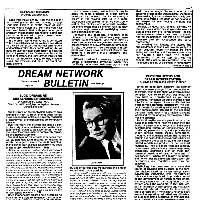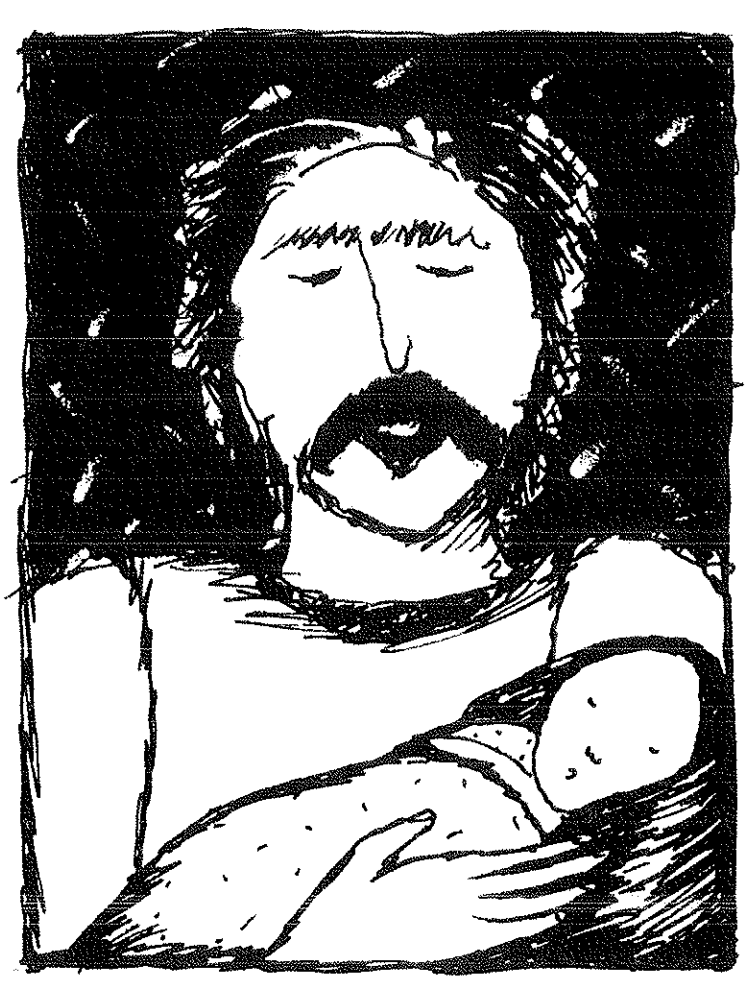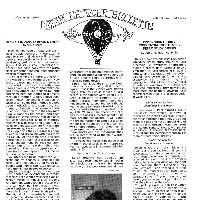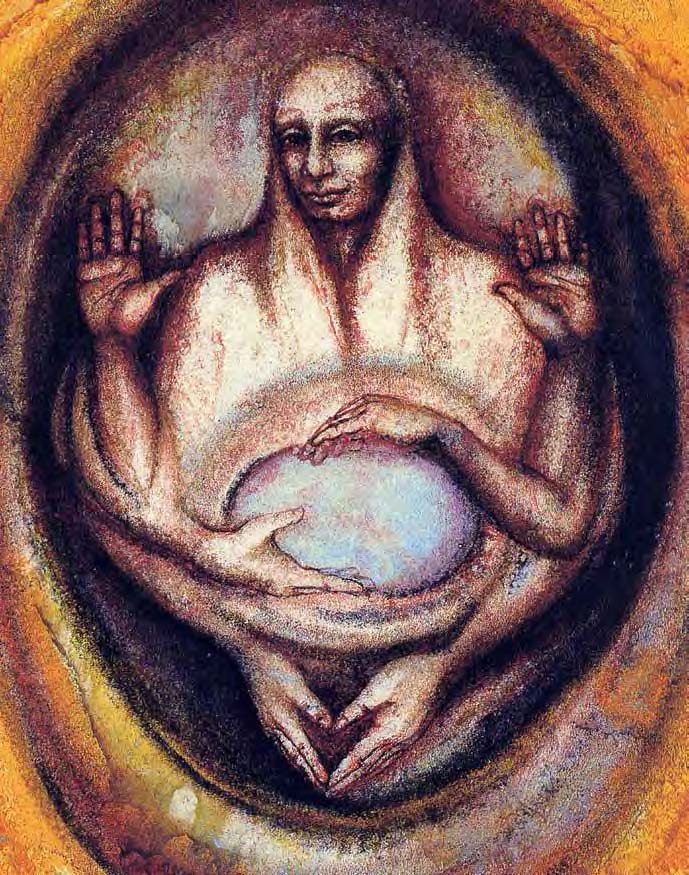According to a front page article in the July 1988 New York Times, an estimated 12 to 15 million North Americans are members of self-help organizations. This number has doubled in the last 10 years and includes roughly 500,000 separate organizations. The article, by Patricia Leigh Brown, goes on to define a self-help group as: "one in which people who face a common concern or condition come together voluntarily for emotional support and practical assistance. They generally meet without professional supervision, though they may draw upon professional expertise". Brown quotes numerous sources describing the "worldwide phenomenon" of these groups, which are partly inspired by the Alcoholics Anonymous movement begun in the 1930s.
Dream groups are a growing part of this awakening giant of mutual aid. People who believe dreams are meaningful need a safe place to share and understand their dreams. There are a large number of people who believe that dreams have only neurological or biological meaning, as well as an even larger number who aren't sure or don't care. I personally am convinced that all my dreams have meaning and I want to understand what that meaning is. What concerns me is how to get together with people who feel similarly, because my dreams are complex, need a social context to reveal themselves, and I frequently can't see beyond my own nose, while someone else can.
The following are ten of many good reasons why I encourage people to form or join dream groups, based on my own belief & experience:
Kindred Spirits:
I need to be in a group that values dreams and believes as I do, that dreams are meaningful and have practical healing value on many levels.
Inexpensive:
These groups are either free or relatively inexpensive, especially compared to therapy.
Not therapy:
With the emphasis on helping the dreamer with his or her dream, there is no focus on interpersonal relationships in the group, as in group therapy.
No ideological pressures:
In therapy, the training or bias of the therapist (often unspoken) will flavor the attitude toward dream work.
More attention to the dream:
In therapy, there is a 50 minute hour, much of which is allotted to discussing the emotional life of the client; time is too precious to 'waste' all of it over discussion of dream material.
No hierarchy:
The group is egalitarian; the facilitator doesn't have to be a clinically trained therapist who is "doing" therapy and responsible for the emotional needs of any individual or the group. The facilitator also shares dreams.
Dreamer controlled process:
The dreamer controls the level of disclosure and is under no pressure to reveal more than s/he is comfortable with in the group. The dreamer is assisted in coming to an interpretation for him or herself.
Socializing:
Dream groups are an exceptional way to meet people and make friends, as opposed to the "problematic" nature of seeking psychotherapy or analysis. (Try inviting your therapist to dinner, and see what happens!)
Generalize-ability:
The skills learned in dream groups may be used and taught to spouses, friends, children. No formal training is necessary to become more fluent in the language of dreams.
Pleasurable:
We spend so much of our time wearing the persona of our different roles in our relationships at work, home, and socializing, that it's pleasurable to "strip down" and share more of our deeper selves in a safe environment with others. There's something intangible that happens in that environment; sharing & helping are brave, human acts that cause us to feel more connected to others and feel better inside.
There are a host of other therapy related issues that are avoided in the setting of the non-therapist facilitated dream group, but in my mind there is one that stands out: self-empowerment. You can easily start your own group if there are none available locally or you don't like the "feel" of what's available in your area. Especially beware of therapist-led groups in which the leader insists one "has to be a therapist to do this": That is a tip-off that it's going to be dreamwork and therapy. There are many therapists who have successfully removed their therapists' hat and led such groups; but in general, experts don't like to be co-opted. Professional therapists serve functions that cannot be fulfilled by dream groups and vice-versa. I'm in therapy and find it very rewarding, but in my dream group, I feel I get the best help with my dreams.










